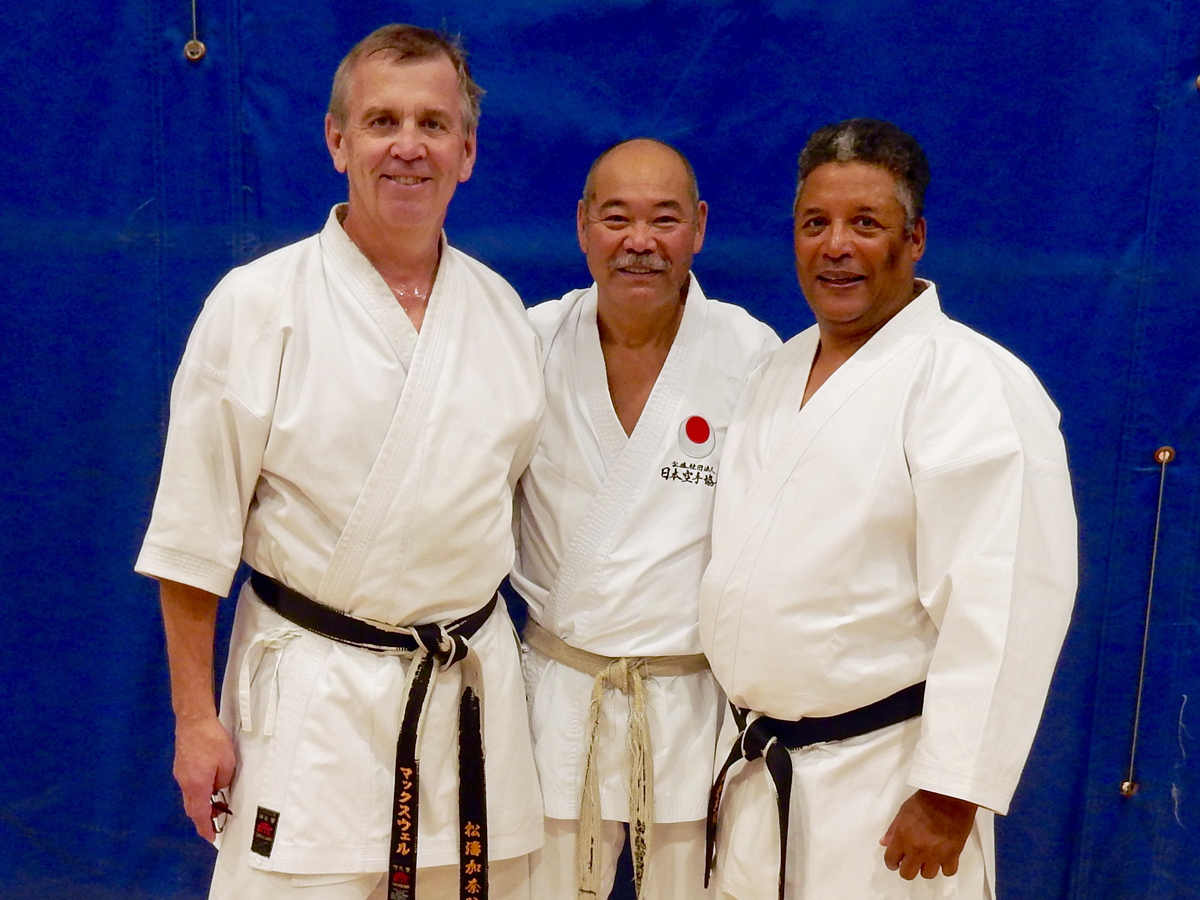5 Questions with the Shotokan Karate Instructor Michael J. Maxwell
By Lookout Production on Oct 16, 2022 with Comments 0
Peter Mallett,
Staff Writer
—
Head Instructor Michael J. Maxwell, Rokudan/6th Dan, is the man behind the popular Shotokan Karate courses for adults and children offered at the Naden Athletic Centre.
What is Shotokan Karate, and why is it so successful in popularizing the sport?
Karate is a striking art using punching, kicking, knee and elbow strikes, and open-handed techniques such as knife hands. Our program aims to teach traditional Shotokan Karate and foster the development of karate through seminars, tournaments, and exposure to world-class karate and other martial arts instructors.
Shotokan was the largest established style in Japan and the best organized for quite some time. They set testing and promotion standards and were instrumental in establishing the JKA (Japanese Karate Association). They were also one of the first styles to encourage some of their instructors to emigrate to other countries to develop Shotokan worldwide.
When did you begin instructing this course, and what is your background and experience as an instructor and student of this discipline?
I began taking karate lessons at CFB Petawawa, Ont., in 1982. Subsequently, I trained at posting locations throughout my Army career, including Germany, England, Ontario (Ottawa/Toronto) and Victoria here in Canada.
I have taken instructor training with Karate, BC, The Canadian Shotokan Karate Association, ShotoCanada and Ottawa Japanese Karate Association (my parent organization). Additionally, I have trained with the Vancouver Law Enforcement Judo Association (Karate BC Level 1 Street Proofing Course). I have also instructed unarmed combat courses with Europe’s British and Canadian military.
I took over the CFB Esquimalt Naden Dojo as Head Instructor in 2000. The CFB Esquimalt Naden Dojo and the Colwood Pacific Activity Centre (CPAC) Dojo – headed by Guido Arnaud Yondan/4th Dan – are partner dojos within CFB Esquimalt and Victoria Shotokan.
Why is learning karate beneficial, and how has it helped service members and youth in the community in their personal development?
Karate benefits cardio, flexibility, coordination, stress relief and reflexes/reaction. It builds confidence in individuals as their capabilities advance. As karate is primarily anaerobic, it should be supplemented with aerobic exercise.
Is this a safe sport for children and adults to learn, and what equipment is required to begin?
Karate at CFB Esquimalt is taught in a supervised, safe and controlled manner. Students can try out karate with loose-fitting clothing like a t-shirt and track pants. After that, they must purchase a white karate gi (uniform). The karate club provides other equipment, such as punching pads.
How physically demanding is this sport, and what should your students expect to see and experience in one of your classes?
Karate is moderately demanding for new beginners and can become more physically demanding as students gain experience and advance in belt levels. Usually, our senior belt classes on Friday and Saturday mornings are significantly more demanding than the other sessions.
More information on class times and registration is available in the CFB Esquimalt Activity Guide, Fall 2022, available in print or online at lookoutnewspaper.com under Special Supplements.
Filed Under: Top Stories
About the Author:







